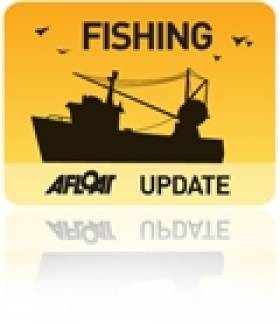Displaying items by tag: tuna
'False' Flags In The 'Wild West' Of Pacific Tuna Fishing
#Fishing - Overfishing. Pollution. Exploitation. Carelessness. The story of one American fishing captain's experiences onboard a nominally US-flagged boat in the Pacific tuna fleet is an alarming one.
Writing for Matter, science writer Kalee Thompson reports on Doug Pine's near-mutiny on board the tuna boat Majestic Blue, the culmination of a series of disturbing events themselves the end result of dodgy deals involving a Korean conglomerate with a reputation for illegal fishing, and congressional lobbyists pushing for ever more lax regulations in order to preserve a paper presence in the tuna business.
Efforts to save America's dwindling tuna fishing industry in the wake of the dolphin catch scandals of decades past found a solution in outsourcing – and have produced a farcical situation where American 'captains' preside over what for all practical purposes are foreign boats with foreign crews, with no actual control over what happens at sea.
And that's only the half of it when it comes to the so-called 'distant water tuna fleet', operating amid a kind of lawlessness akin to piracy around the poverty-stricken islands of the Western Pacific, at the expense of marginalised crew and vulnerable marine wildlife alike.
Matter has much more on the story HERE.
Cumbrians Urged to Try New Fish to Save Irish Sea Stocks
#FISHING - Seafood lovers of Cumbria in north-west England have been urged to broaden their tastes to save depleted stocks of their favourite fish in the Irish Sea.
According to the News & Star, some 80% of Britons "insist upon eating just five types of fish – cod, tuna, salmon, prawn and haddock."
But the Cumbria Wildlife Trust says that with coastal waters facing the serious threat of overfishing, a rethink is needed among both consumers and suppliers alike.
“The Irish Sea has a wide range of edible fish species but you wouldn’t know it judging by the fish counters in supermarkets across the county," says Lindsay Sullivan of the trust's Wild Oceans project, an 18-month scheme that hopes to "turn the tide for seafood".
A big part of this is encouraging consumers to skip the usual white fish and try different species such as flounder, monkfish and red mulllet, creating demand for cheaper and more sustainable fishing.
The News & Star has more on the story HERE.





























































